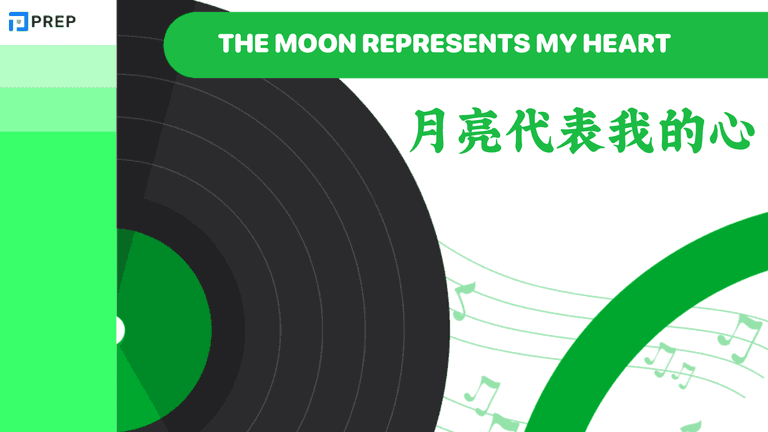How to Say Not This Time in Chinese: A Guide to Perfect Contextual Fluency
Picture this: you're in Beijing when a friendly local offers to share their homemade dumplings. You're full from lunch and need to politely decline, but here's the crucial insight: directly translating not this time in Chinese will make you sound robotic and potentially rude. True fluency comes from understanding not just what to say, but when and why to say it. This guide will equip you with the precise phrases, cultural nuances, and contextual wisdom needed to navigate these social situations with grace, ensuring your refusals strengthen rather than strain your relationships.
- I. The Easiest & Most Common Way: Polite Refusal with 下次吧 (xià cì ba)
- II. Quick Reference Cheat Sheet: Not This Time in Chinese for Every Scenario
- III. How to Say Not This Time in Chinese - Guide for Every Contexts
- IV. Common Mistakes That Make You Sound Unnatural or Rude
- V. Advanced Insights & Frequently Asked Questions
- VI. Conclusion
I. The Easiest & Most Common Way: Polite Refusal with 下次吧 (xià cì ba)
下次吧 (xià cì ba) - "Next time, okay?"
This phrase serves as your linguistic Swiss Army knife for 90% of situations where you need to express not this time in Chinese. The beauty of 下次吧 lies in its gentle, non-confrontational approach that masterfully preserves what Chinese culture calls "给面子" (gěi miàn zi) - giving face. When you use this phrase, you're simultaneously declining the current offer while affirming the person's value and keeping future possibilities open, which demonstrates sophisticated social awareness that native speakers immediately recognize and appreciate.
The pronunciation flows naturally with a falling tone on 下 (xià), a rising tone on 次 (cì), and a neutral tone on the particle 吧 (ba). This final particle 吧 softens the entire statement, transforming “not this time in Chinese” what could be a harsh rejection into a warm suggestion for future connection.
-
Quick Dialogue:
A: "再来一碗米饭吧!" (Have another bowl of rice!)
B: "下次吧,我已经吃饱了,谢谢!" (Next time, I'm already full, thank you!)
II. Quick Reference Cheat Sheet: Not This Time in Chinese for Every Scenario
Understanding how to say "not this time in Chinese" requires mastering multiple expressions that match specific social contexts and emotional tones. This reference table provides instant access to the most essential phrases you'll need.
|
English Meaning / Context |
Chinese Phrase (Characters & Pinyin) |
Social Tone / Feeling |
|
Polite Refusal (General) |
下次吧 (xià cì ba) |
Friendly, Warm, Open |
|
Firm Statement (Promise) |
这次不会了 (zhè cì bù huì le) |
Determined, Resolute |
|
Casual Dismissal |
这次算了 (zhè cì suàn le) |
Relaxed, Final |
|
Regretful Decline |
这次不行了 (zhè cì bù xíng le) |
Apologetic, Constrained |
This table serves as your quick-access guide when you need to express "not this time in mandarin chinese" with precision and cultural appropriateness.
III. How to Say Not This Time in Chinese - Guide for Every Contexts
Context 1: The Firm Statement - 这次不会了 (zhè cì bù huì le)
This phrase carries significant grammatical and cultural weight through its use of 不会了, which indicates a definitive change of state or a resolved promise. The structure communicates that something that might have happened before will definitively not happen this time, making it perfect for situations where you're making a commitment or addressing a repeated behavior.
The grammatical construction 不会了 implies a transformation from a previous state (where something was possible or likely) to a current state (where it's definitively ruled out). This makes the phrase particularly powerful for expressing personal resolve or making promises about future behavior.
-
Example Dialogue:
A: "你又要迟到了吗?" (Are you going to be late again?)
B: "这次不会了,我已经提前出门了。" (Not this time, I've already left early.)
Context 2: The Casual Dismissal - 这次算了 (zhè cì suàn le)
The power of 这次算了 lies in the versatile verb 算了, which literally means "to calculate" but idiomatically translates to "let it go," "forget about it," or "never mind." This phrase conveys a more final tone than 下次吧 because it suggests the speaker has weighed the options and decided against proceeding, with less emphasis on future possibilities.
This expression of not this time in chinese works beautifully in low-stakes situations where external circumstances or personal preference leads to a decision to skip something. The tone remains friendly but carries a sense of finality that 下次吧 deliberately avoids.
Example Dialogue:
A: "今晚去看电影怎么样?" (How about going to the movies tonight?)
B: "这次算了,我太累了想早点休息。" (Let's skip it this time, I'm too tired and want to rest early.)
Context 3: The Regretful Decline - 这次不行了 (zhè cì bù xíng le)
When you need to express genuine regret about declining an opportunity due to circumstances beyond your control, 这次不行了 becomes your most authentic choice. The word 不行 directly means "not possible" or "won't work," immediately communicating that external factors, rather than personal preference, are driving the decision.
This phrase naturally conveys empathy and disappointment, making it ideal when you genuinely wish circumstances were different. The addition of 了 emphasizes that this impossibility is a current, specific situation rather than a general state, which helps maintain the relationship by implying that different circumstances might yield different results.
Example Dialogue:
A: "明天一起去爬山吧!" (Let's go hiking together tomorrow!)
B: "这次不行了,我妈妈突然生病了,我得照顾她。" (I can't this time, my mother suddenly fell ill and I need to take care of her.)
IV. Common Mistakes That Make You Sound Unnatural or Rude
Understanding how to say not this time in Chinese properly requires avoiding several critical mistakes that can undermine your fluency and social relationships. These errors are particularly common among English speakers who rely too heavily on direct translation.
-
The Word-for-Word Translation Trap:
This pitfall involves using "不是这次" (bù shì zhè cì), which technically translates each word correctly but creates an unnatural, robotic expression. This phrase functions as a factual statement rather than a social expression, making you sound like a dictionary rather than a person engaging in conversation.
Native speakers would find this construction awkward and potentially confusing because it lacks the cultural softness and relationship-preservation elements that characterize natural Chinese communication.
-
Using a "Firm" Phrase in a "Polite" Situation:
Using the wrong not this time in Chinese can create social tension through mismatched intensity levels. Imagine being offered a cup of coffee by a colleague and responding with "这次不会了" instead of the gentler "下次吧" - the former sounds like you're making a solemn vow never to drink coffee again, while the latter maintains warmth and leaves room for future connection. This contrast illustrates why context-appropriate phrase selection matters more than technical accuracy in building authentic relationships through language.
Understanding these nuances transforms your Chinese from technically correct to socially fluent, enabling you to navigate relationships with the cultural sensitivity that native speakers value most.
V. Advanced Insights & Frequently Asked Questions
1. What exactly is "face" and why does it matter when declining offers?
Face, or 面子 (miàn zi), represents the cornerstone of Chinese social interaction, encompassing concepts of dignity, reputation, honor, and mutual respect that extend far beyond simple politeness. When you decline an offer using culturally appropriate phrases for "not this time in chinese," you protect both your own face and the other person's face by avoiding direct rejection that might suggest their offer was unwelcome or inappropriate.
2. How do these refusal phrases group together with other similar expressions?
Chinese refusal expressions exist on a spectrum from soft and indirect to hard and direct, each serving different relationship dynamics and social contexts.
-
Soft expressions like 我考虑一下 (I'll consider it) and 再说吧 (we'll talk about it later) maintain maximum flexibility and relationship warmth.
-
Direct phrases like 不行 (not okay/possible) and 我拒绝 (I refuse) prioritize clarity over social comfort and should be reserved for situations requiring firm boundaries.
3. How does 下次吧 compare to simply saying 不要 (don't want)?
The difference between 下次吧 and 不要 illustrates the sophisticated relationship between language choice and social harmony in Chinese culture.
-
不要 functions as a blunt, immediate rejection that focuses entirely on the speaker's desires
-
下次吧 demonstrates consideration for the other person's feelings while still communicating your decision.
The harsh directness of 不要 typically appears in children's speech or very informal situations where relationship preservation isn't a priority, making it inappropriate for most adult social interactions when expressing "not this time in chinese."
4. Can I ever use a direct translation of not this time in Chinese?
No, not in conversational contexts where relationship building matters. A literal translation might occasionally appear in formal written documents or technical translations, but it never functions effectively in interpersonal communication because it lacks the cultural intelligence and social awareness that characterize natural Chinese expression. Authentic fluency requires understanding that effective communication transcends word-for-word accuracy to embrace cultural appropriateness and relationship sensitivity.
VI. Conclusion
Achieving perfect contextual fluency when expressing "not this time in Chinese" extends beyond memorizing phrases to embrace cultural communication and relationship preservation. These expressions connect your intentions with Chinese social values, enabling graceful declines that strengthen connections.
By mastering the differences between 下次吧, 这次不会了, 这次算了, and 这次不行了, you've gained tools to navigate social situations with nuanced understanding that natives recognize. Use this knowledge as keys to unlock authentic connections that honor both your needs and the cultural wisdom embedded in the Chinese language.

Hi I'm Chloe, and I am currently serving as an Product Content Administrator at Prep Education. With over five years of experience in independent online IELTS study and exam preparation, I am confident in my ability to support learners in achieving their highest possible scores.
Comment
Premium content
View allPersonalized roadmap
Most read












